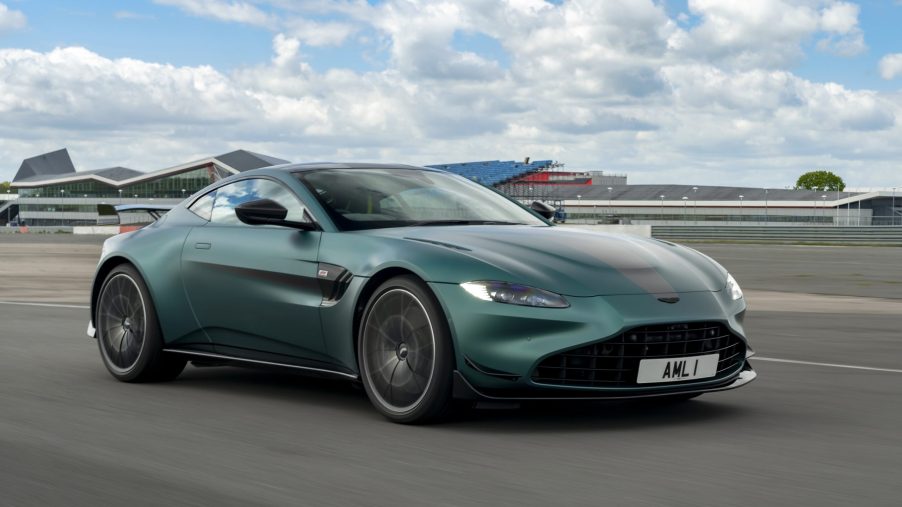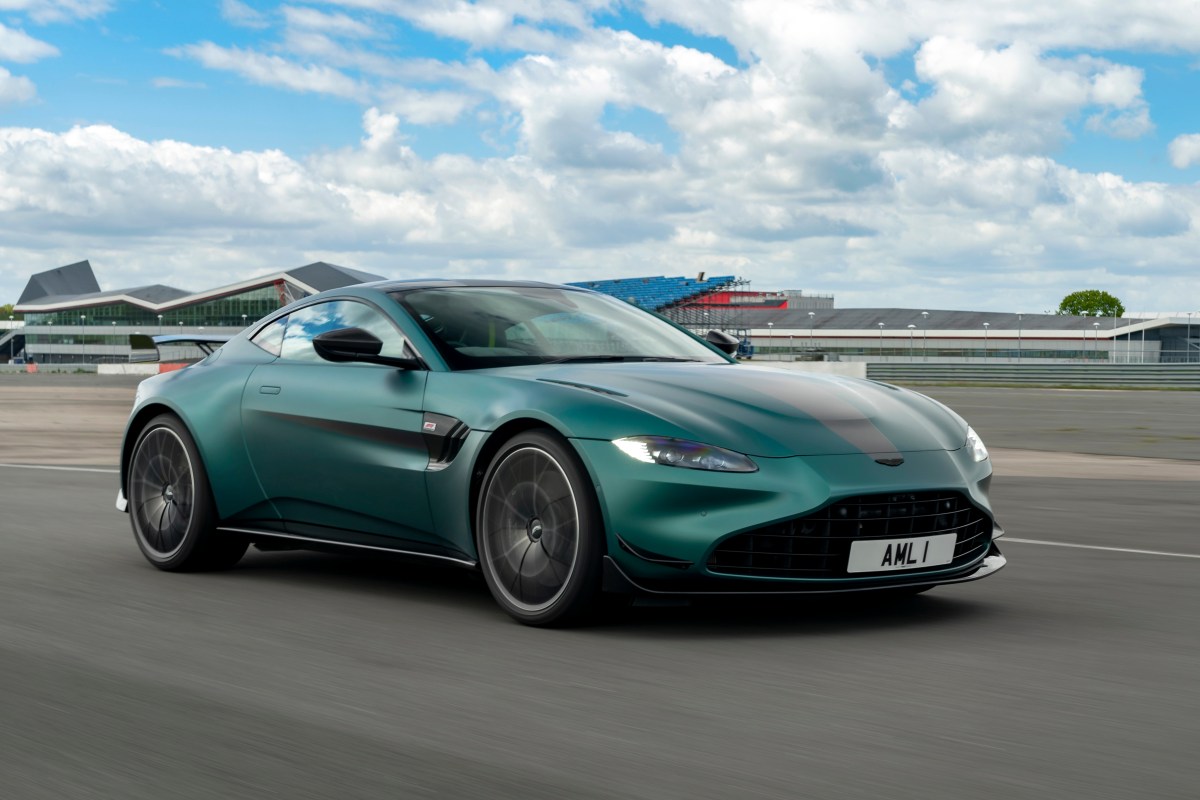
Aston Martin Partners With Britishvolt to Develop High-Performance Batteries
Aston Martin, along with the entire automotive industry, is moving toward an EV future. While the famed British car maker won’t quickly abandon its V12 and V8 engines, it does see a need to offer hybrid and EV vehicles in the near future.
The need to incorporate hybrid and electric vehicles into its portfolio brings a number of challenges. First, among many, is that Aston Martin is a small company. It doesn’t have the resources to do all of the EV engineering in-house. As such, the British maker of high-end sports cars announced a deal with Britishvolt to develop high-performance batteries for their upcoming hybrid and electric vehicles.
Britishvolt and Aston Martin outline the objectives of their partnership
Aston Martin’s partnership with Britishvolt comes shortly after Lotus announced it would be working with the UK-based company. Where Lotus will go 100% EV, Aston Martin is only just starting to integrate hybrid and electric drivetrains into its vehicles.
Aston Martin and Britishvolt are forming a joint research and development team. The goal is to design and build battery packs and battery management systems. As quoted by Autocar, Aston Martin stated that its objectives include “new standards of repeatable on-track performance, charging time and range.” This would mirror the strategy that Porsche has set for its EV offerings.
The British sportscar maker currently has a partnership with Mercedes-Benz to use powertrains and other components. The new deal with Britishvolt would not interfere with this existing agreement and supplement the Mercedes technology.
Aston Martin’s future with hybrids and EVs
In 2024, Aston Martin will introduce its first plug-in hybrid, the mid-engine Valhalla. It will follow that with the first EV in 2025. The UK-based company has said that by 2026, all new vehicles will have an electric powertrain option.
As quoted by Autocar, Aston Martin’s CEO Tobias Moers had this to say, “I believe we can create new technologies to power benchmark-setting Aston Martin electric cars that will match our reputation for high performance and ultra-luxury with the highest standards of sustainability.
“Supplementing the close strategic relationship with our shareholder Mercedes-Benz AG, this partnership provides Aston Martin with additional access to technology and skills to broaden our electrification options.”
The first car in the long-term plan is the Valhalla, a mid-engine supercar with a 4.0-liter V8 hybrid powertrain. The Valhalla uses a lot of the Valkyrie’s design and technology. It’s not quite a mini-Valkyrie but draws heavily from the design and technology used in Aston Martin’s hypercar.
Britishvolt sees an opportunity that large battery manufacturers underserve

As the automotive industry continues its push toward electric vehicles, the current technology exists to provide the range that most buyers expect, without focusing specifically on high performance. High-performance EVs often suffer from the repeatable performance problem. That is the issue of power and performance degradation after continuous use. Porsche has attempted to address this problem with the Taycan, but the sacrifice for consistent performance is range.
Britishvolt sees an opportunity to improve performance, advance the technology, and become a leader in the commercial and high-performance market.
Also speaking with Autocar, Britishvolt boss Orral Nadjari had this to say, “The market for high-performance car batteries isn’t very well served at present. The Big Six battery manufacturers currently concentrate on the mainstream market, where the volume is, whereas while we ramp up, we’ll supply sectors at the extremities of the market, especially the commercial and the high-performance markets. Concentrating on the high-performance sector allows us to push the technology in an uncompromising environment.”
Aston Martin’s move into hybrid and electric powertrains is typical of the industry at the moment. Interestingly, their partnership with Britishvolt could dramatically improve the performance of EV drivetrains, battery technology, and battery management technology. That will allow for consistent performance from full charge to empty. Something Tesla has suffered from.
Here’s hoping the partnership is a success. And, that new battery technology trickles down to more affordable electric vehicles and sports cars.


